I get it! With all these terms about us Northern European folks that kinda look and sound similar, it’s far from easy to tell all the words apart — especially since the words themselves are so similar as well! So if you’re curious about the exact difference between Norse, Norwegian, and Nordic, you’ve come to the right place.
What’s the Difference Between Norse, Norwegian, and Nordic?
- Norse = The people of and anything related to or from the Scandinavian region (Sweden, Norway, Denmark) during the Viking and early Middle Ages, (including the Norse settlements, Old Norse language, and Norse mythology).
- Norwegian = Citizens of and anything pertaining to the country of Norway (including the Norwegian language).
- Nordic = Citizens of or anything pertaining to the collective countries of Sweden, Denmark, Norway, Finland, Iceland, Faroe Islands, Greenland, and Åland (including the Nordic language group).
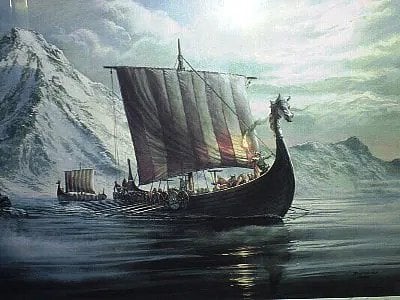
Norse
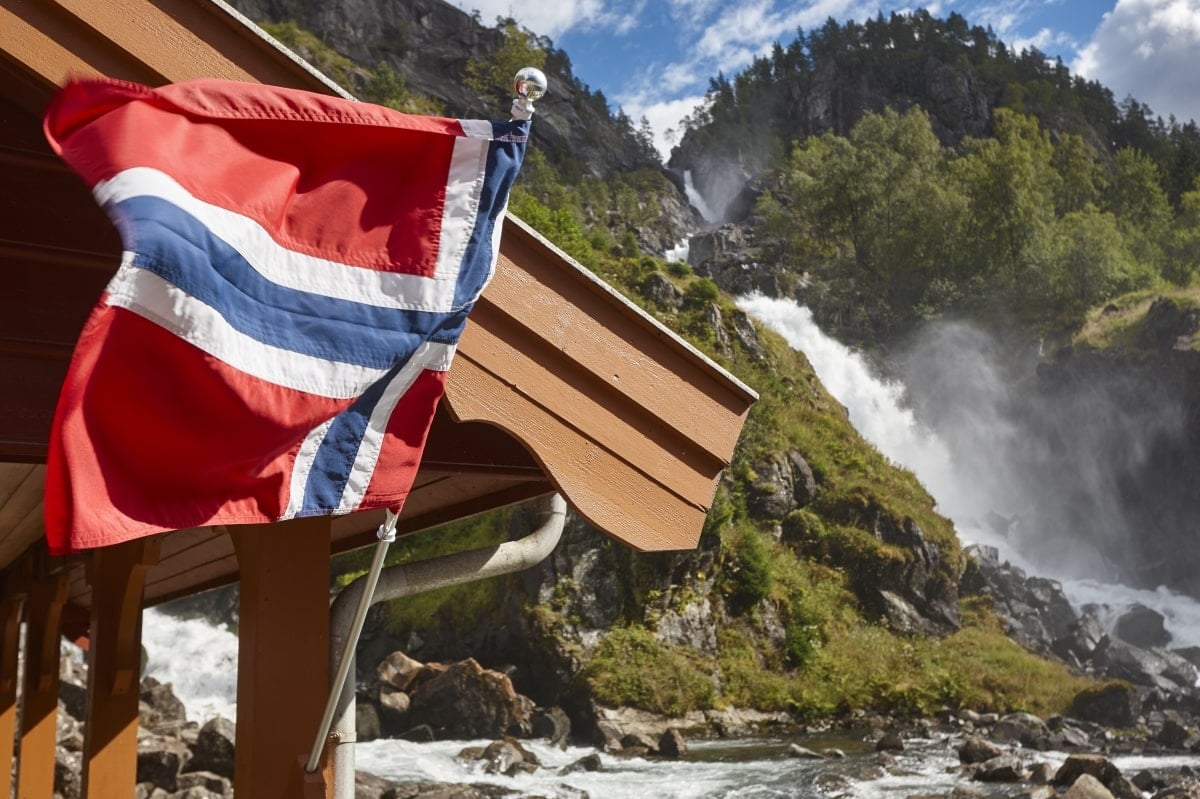
Norwegian
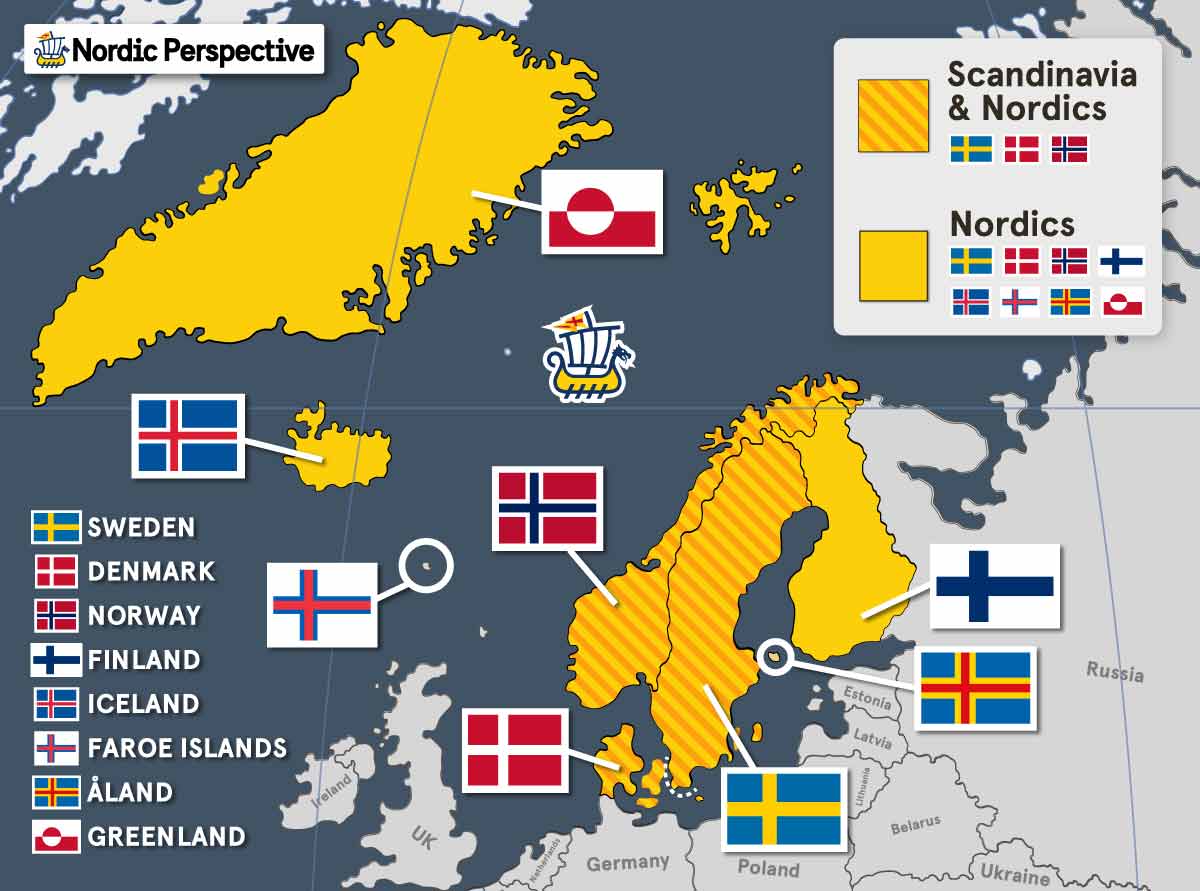
Nordic
Norse essentially means what most of us would call the Scandinavian Vikings and their culture during the Viking Age and early Middle Ages, Norwegian refers to anything from the country of Norway, and Nordic refers to anything from the Nordic region.
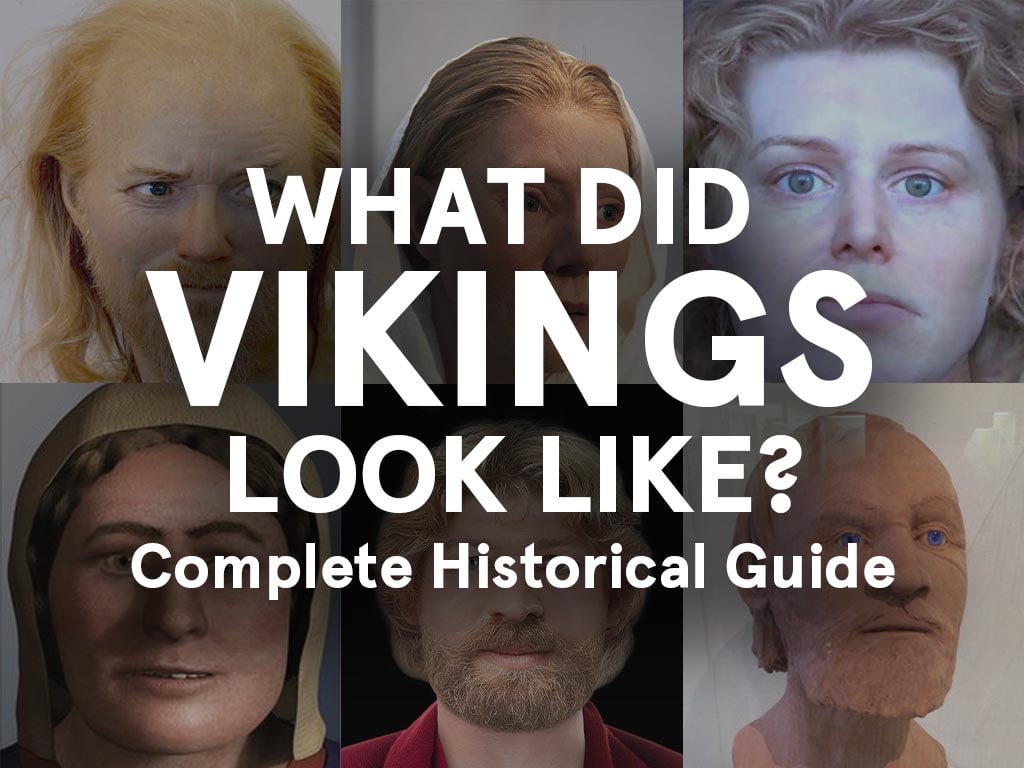
Location: Northern Europe
Official Languages: Old Norse (divided in Old West Norse, Old East Norse, Old Gutnish)
Combined Population: around 800 000
Norse: The Norsemen, Old Norse Religion, and the Old Norse Language
The Norse people (or Norsemen) were essentially the inhabitants of Scandinavia during the Viking age. They all spoke Old Norse and shared an Old Norse religion. As you probably know, many Scandinavians known as Vikings went out on journeys in search of land and riches during this time, but not all Norse were Vikings.
Norwegian: Citizens of Norway, Their Language, and Their Ways
Norwegian refer to citizens of or anything related to the Scandinavian country of Norway, and has been a term in use since the middle ages. During the Middle ages one could be both Norwegian and Norse, but this is not so much the case anymore since not many people identify as Norse today.
There are 5 391 369 Norwegians currently living in Norway according to the latest data, and another 5 or so million with Norwegian heritage that currently live in the US, totaling around 10 million Norwegians worldwide.
Meaning: Norway means “the northern way”
Location: Northern Europe
Capital: Oslo
Official Languages: Norwegian, Sami
Population: 5 372 191
Total Area: 148 729 sq mi across 1 timezone (US 50 states + D.C. = 3 796 742 sq mi across 6 timezones)
Established: 872, gained independence in 1905
Location: Northern Europe
Official Languages: Swedish, Danish, Norwegian, Finnish, Icelandic, Faroese, Greenlandic, Sami
Combined Population: 27 376 022
Combined Total Area: 1 345 274 sq mi, across 5 timezones (US 50 states + D.C. = 3 796 742 sq mi across 6 timezones)
Nordic: The Northern European Region and Its People
The more modern term Nordic refers to citizens of or anything related to the Nordic countries in northern Europe (Sweden, Norway, Denmark, Finland, Iceland, Faroe Islands, Greenland). This term has mainly been used since the establishment of Förening Norden (The Nordic Associations) in 1919.
The Nordic cross flag refers to the type of flags the Nordic countries have, containing a Nordic or Scandinavian Cross. The oldest of these is the Danish, dating back to 1219 according to legend.
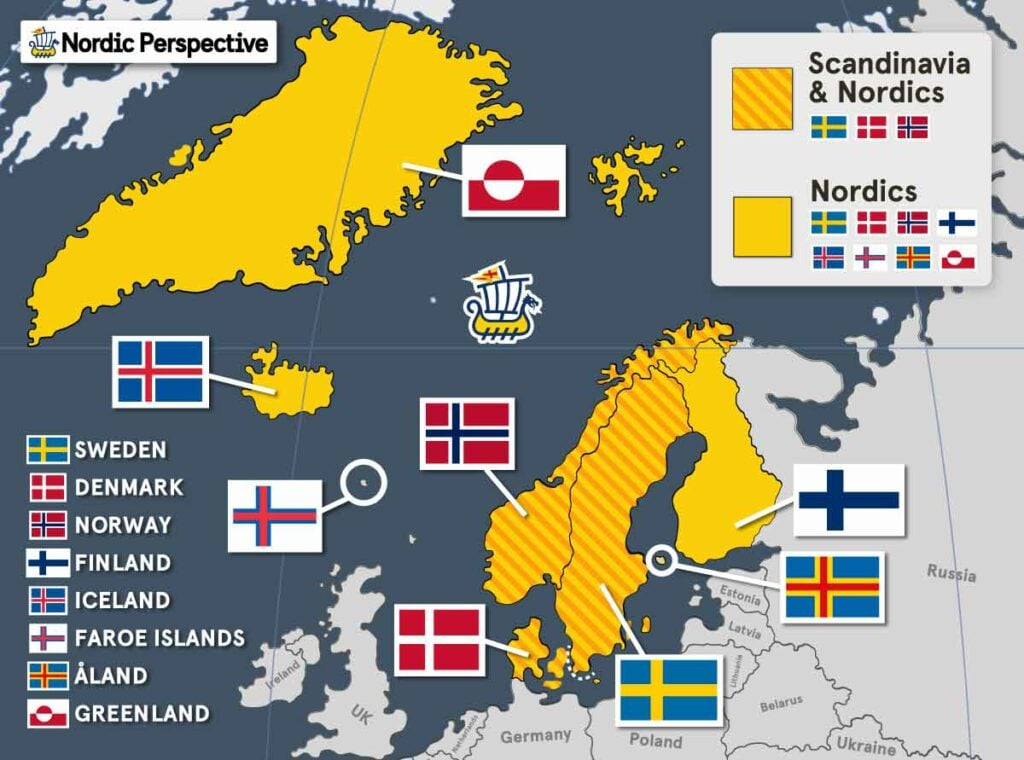
Quick Answers
Is Norway Nordic or Scandinavian?
Norway is both Nordic and Scandinavian, same as its Scandinavian neighbors Sweden and Denmark. They are all Scandinavian countries—formally speaking—and are all also part of the larger Nordic region that further includes Finland, Iceland, the Faroe Islands, and Greenland.
🤔 Curious about the differences between Swedish and Danish culture? I’ve written an article where you can find out how Swedes and Danes compare and how their behavior generally differs, go check it out if it sounds interesting!
Sources
https://royalsocietypublishing.org/doi/10.1098/rstb.2013.0384
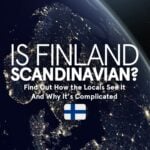 Is Finland Scandinavian? (The Full Answer)
Is Finland Scandinavian? (The Full Answer)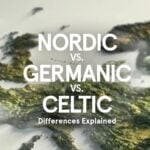 Nordic vs. Germanic vs. Celtic: Differences & Links Explained (+ Maps)
Nordic vs. Germanic vs. Celtic: Differences & Links Explained (+ Maps)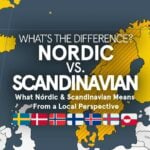 Nordic vs. Scandinavian: Meaning & Usage Explained
Nordic vs. Scandinavian: Meaning & Usage Explained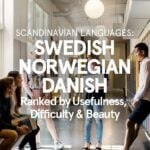 Nordic and Scandinavian Languages Explained and Ranked
Nordic and Scandinavian Languages Explained and Ranked

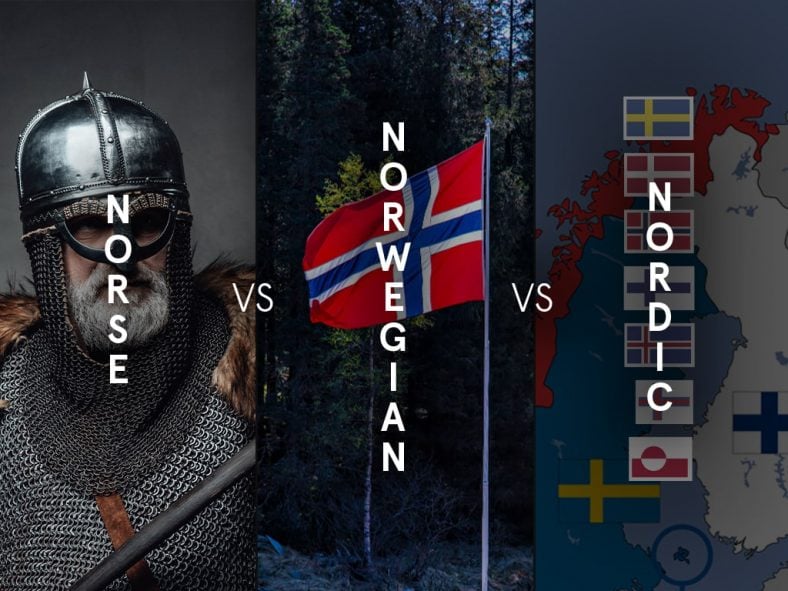
Wow, I stumbled upon this site and it looks and feels really informative and professional! Very nice work, and I also like you have referring links for the information. A big plus is that you don’t use Wikipedia links in excess (or at all, I haven’t seen any yet) which most other sites do, which makes it less professional. I’m myself interested in the topics and you really have thought through on all things, superb! Eller som man säger grymt bra och snyggt!
Many thanks! (tackar ödmjukast :))
This warms my soul as I’m a huge nerd for all things Nordic and Norse, and really like to dive deep into academic and generally reliable sources to find out more about something, or discover new facts altogether. So thanks for noticing!
Wikipedia is of course a good resource, but as we all learn in school; it’s not a source. 😉
I definitely also enjoy presenting my findings in a more easily digestible format for those who might not like plowing through endless tables in scientific journals, and hopefully help spread some facts and science about our Nordic region, instead of made-up mumbo-jumbo (which seems far too common on the interwebs).
It’s also a bit easier explaining Nordic culture as someone who has actually been born and grown up here, which I notice is not the case with many other sites.
Thanks for reading & ha det gött!
Follow migration patterns 1000bce of Saskatchewan, Norse aren’t not European in any sense. This article speaks of Vikings as if they all come from Scandinavia but there is enough evidence (Leif Erikson) of Norse origins outside Europe. Vikings on the other hand come from many cultures, not just the Dutch. France, Spain, had Vikings 400 years before anglos invaded England.